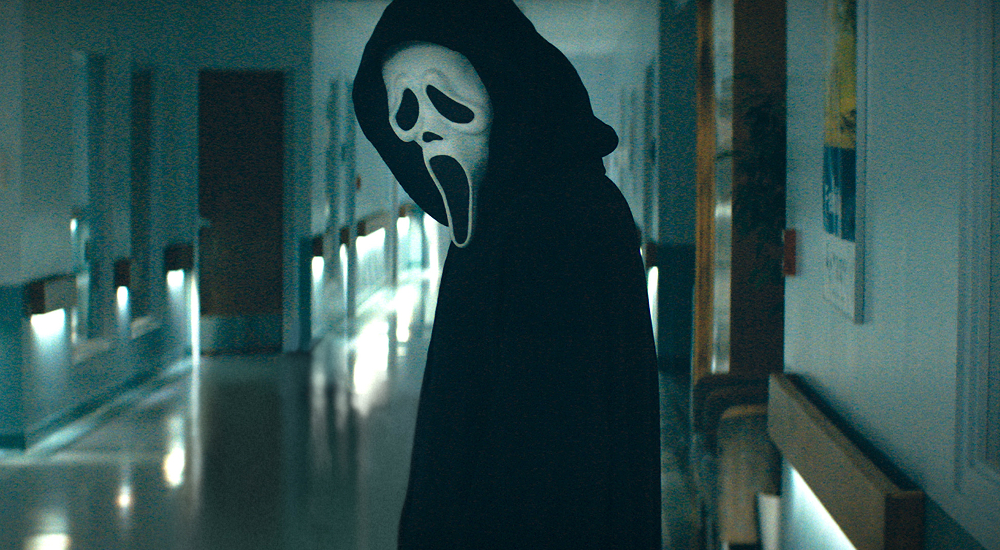"Are you telling me I'm stuck in the middle of fan-fucking-fiction?"
In 1996 Scream reinvented the horror genre with its seemingly effortless blend of blood, guts, and humor, turning the field on itself as a fully aware group of teenagers fell victim to a Ghostface killer. At that time, a twenty-year-old Drew Barrymore was the most prolific actor of the bunch. She was gutted after a sadistic game of horror movie trivia not fifteen minutes in. To this day, the scene is met with praise, a staple of director Wes Craven's career.
The film worked because it never took itself too seriously. Always willing to poke fun, its meta approach rejuvenated the lackluster teen slasher trope by empowering and burdening its characters with the affirmed knowledge they are stuck within the confines of a stereotypical whodunit flick. That same approach still exists with the newest film, the fifth in the franchise, as new directors Matt Bettinelli-Olpin and Tyler Gillett (Ready or Not) embrace Craven's legacy. Merging his style with modern twists and turns, they authenticate the formula, proving it still works in today's environment.
When a new killer (or killers?) begins to prey on the residence of Woodsboro, the local teens don't appear to be all that concerned or impressed. While their universe has the Stab series, a Scream equivalent based on the events of the first few films, they appreciate the "elevated horror" trend, a subgenre popularized by films such as Get Out, The Babadook, and Midsommar.
But Scream doesn't want or need to be elevated. Though it likely confuses audiences by dropping the "5" from its title (think 2018's Halloween), in much the same vein as Jurassic World and Ghostbusters: Afterlife, this film looks to mesh the reboot and sequel stereotypes into a newly minted "requel." Its objective is to offer a new, modern take on the classic story while acknowledging the complete franchise history. It comes with a new set of rules, expectations, and opportunities that the new cast must maneuver—oh, and everyone is expendable.
In the opening scene, a trademark for the franchise, Jenna Ortega's Tara Carpenter has a run of social commentary on the dated Stab films. And she isn't the only one to complain about their complacency and lack of sophisticated horror. Countless times throughout the film, we are greeted with standard genre regularities that past Scream (and subsequently Stab) films have relied on to push the narrative along. It's a joke within a joke, calling out itself and the genre at large as our fresh faces work to understand the required patters in an effort to survive. But even their need for survival is met with limited enthusiasm - Dylan Minnette's Wes Hicks aside.
When Neve Campbell, Courteney Cox, and David Arquette grace the screen, it's a special moment for fans. Mentors to a degree, they are no longer overly emotional in their reactions. They've been here before. They know the game. Death is no longer a fear. And though this is their movie, we quickly realize this isn't entirely their story. That belongs to a new crop of characters, including sisters Sam (Melissa Barrera) and Tara. Tabbed as the new Sidney, Sam quickly learns that running isn't an option. No matter how far you venture, they always find a way to bring you back. In the case of Scream, we get to return to where it all began, and while nostalgia plays a vital role, this entry proves that when done right, the world of Ghostface operates in a dark, cynical circle. No lie, I'm here for it!

